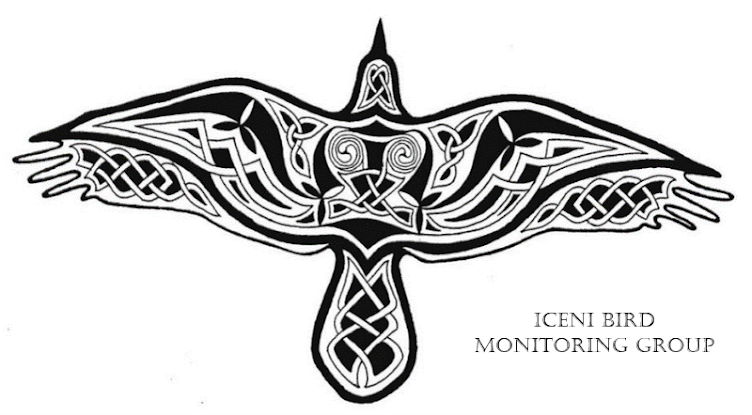Iceni Bird Monitoring Group is based in Norfolk, primarily covering the North of the county.
We have a number of projects that we currently run, either directly independently or in partnership with other individuals or groups in the area. The details of these can be found on our project page. We welcome engagement from birders and the public to report sightings to gain as much information as we are able, from these studies.
We also do other ringing monitoring at a number of locations, in conjunction with land owners and other organisations, and these are listed on our partner page.
You can follow what we do on Twitter @BirdIceni or Facebook
We are all licensed through the British Trust for Ornithology (BTO) as ringers authorised to handle birds under the Wildlife & Countryside Act, which the BTO issues under contract for the relevant Government agency. In respect of certain species all activity will be conducted under the appropriate Schedule 1 licence issued under the Wildlife & Countryside Act. All data is submitted to the BTO making it available to various bodies and research projects.
You may wonder why ringing birds is still important, and you may say surely you know everything there is to know. And, whilst the answer is yes we know more than we did fifty years ago, it is import that we continue to monitor for change, with so many things effecting our bird populations, development, land use change, climate change and a whole host of other factors. Data is collected relating to the birds species, age, physical health, breeding condition and moult stage. Nothing is static, and to stop monitoring how the various changes effect our birds would be short sighted and potentially lead to lost opportunities to make positive interventions. We may not notice some changes until it is too late. More about ringing can be found on the BTO website.
In recent years Blackcap wintering behaviour has changed with more and more birds being seen in the UK in the winter, which we may have thought were British Birds remaining year round, but studies through ringing have established they are not, and the migration of some European Blackcaps has changed, bringing them to winter in the UK.
Currently we have no idea what long term effects Avian Influenza will have on some species, how it might change their behaviour, breeding habits or even how or if they might bounce back from it.
Through ringing studies the migration routes and patterns of many European species have been monitored, and statistics compiled into graphic illustrations such as used in the European migration atlas, whilst ongoing ringing will identify any changes to these routes.
If you find a ringed bird please report it via the BTO website.
It is also important to record other taxa. Variations and declines in other fauna can effect our wild bird populations, and whilst some are easier to identify and record such as Mammals, Butterflies and Dragonflies, probably the more widely recorded non avian taxa, there are for those that want a challenge and to do some ground breaking recording, a lot more out there to get into, learn about and record. Non avian taxa is best recorded via iRecord or Birdtrack.


